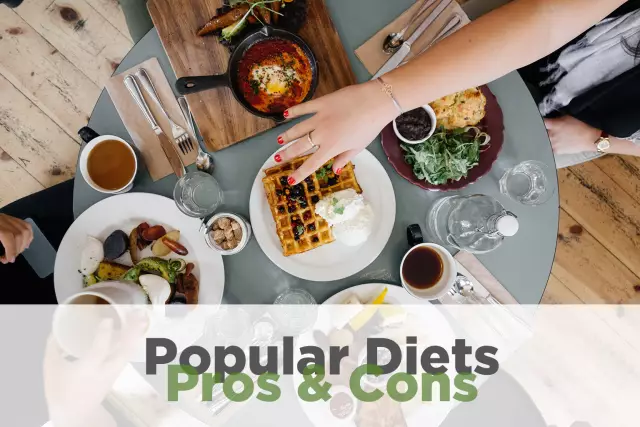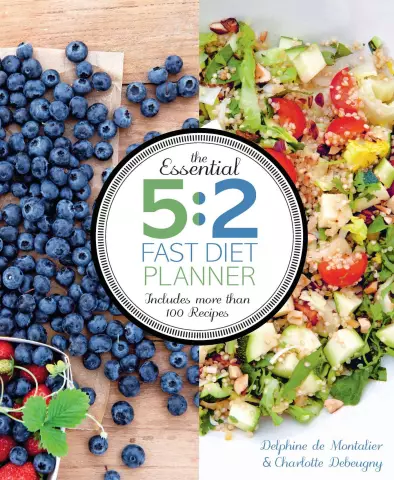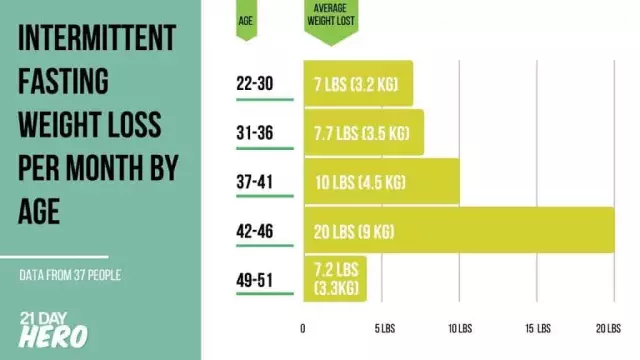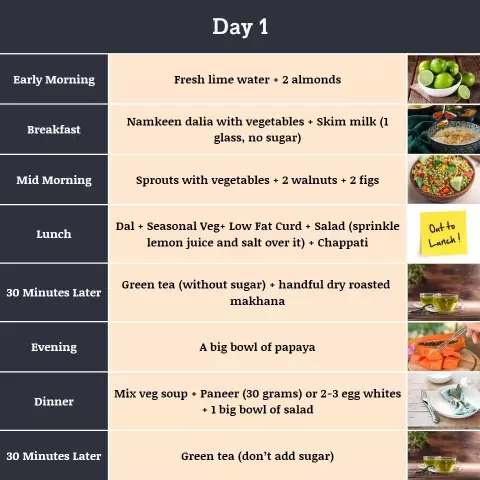- Author Rachel Wainwright wainwright@abchealthonline.com.
- Public 2023-12-15 07:39.
- Last modified 2025-11-02 20:14.
What is on the diet

Diets and the problem of excess weight concern almost every woman. In this case, the actual body weight of a woman does not matter. Thin girls dream of losing weight, maybe even more passionately than fat ladies. The goal that each sets for herself must be recognized as unrealistic. Whatever the dynamics of weight, none of the fair sex can afford to completely forget about diets in the modern world. However, more and more men are also beginning to be interested in this topic. Before all those losing weight, the question arises, what is on the diet?
Diet - healthy eating
If we consider nutrition from the point of view of a doctor, then, first of all, it should be complete, balanced and healthy. It makes no sense to deplete reserves of minerals, vitamins and amino acids by mindless starvation or diets on one type of food. The result will be unsatisfactory. You may lose weight, but this will not add beauty to you. The skin will look aged and tired, the hair will become dull, and the nails will become brittle. In addition, there is a risk of developing serious illnesses due to improper diets. Peptic ulcer and duodenal ulcer, biliary dyskinesia, osteoporosis can result from malnutrition, especially fasting. So, the real correct diet is healthy eating. What is on the diet in this case? Balanced food, tasty and healthy at the same time.
If you starve, can you lose weight?
During the day, we expend energy to maintain a normal body temperature and get work done. If a person fully eats, then he receives energy from food in the form of carbohydrates, fats and proteins. If you starve, the body will begin to consume the accumulated calories. Energy in the body is stored in the form of fatty deposits. It turns out that if you starve, you can lose weight. On the other hand, hunger is very stressful for the body. Metabolism switches to economy mode. Therefore, the weight will not go away as quickly as you would like. For a week of fasting, many lose weight by 2-4 kilograms. It is quite possible to achieve such results without giving up food completely.
Fasting causes dizziness, headaches, weakness, and decreased concentration in most people. Many people report a decreased mood background and increased irritability. In addition, when you stop starving, you risk quickly regaining your weight again. And maybe even add more. Hunger causes a shift in metabolism. Fewer calories will be consumed throughout the day. Eating as usual, you can gain weight.
Nutritionist tips for losing weight
Different nutritionists have their own ideas about exactly how to lose weight, what is on the diet. However, when it comes to medical specialists, their recommendations are quite similar. You should listen to the advice of those you trust. The best diet is a healthy diet. It is important to organize regular meals throughout the day. You must have at least breakfast, lunch and dinner. Possibly two or three more snacks between meals. Eat better in small portions, but more often. Try drinking a glass of water every time you eat to reduce your appetite. It's also worth adding fiber-rich foods to your main meals. First of all, we are talking about vegetables and bran. Food must be prepared correctly. Fat in the form of margarine, vegetable and butter must be eliminated almost completely. Food can be steamed, stewed, boiled, but not toasted. French fries are four times more nutritious than jacket fries. Pay attention to what and when you eat. Start a "food diary": record foods, portions, meal times. Analyze what triggers overeating. For some, food is a way to have fun. For someone - an indispensable attribute of communication. Eliminate situations where you might eat too much, if possible. Decide in advance what is on the diet. Keep healthy foods in the fridge. For someone - an indispensable attribute of communication. Eliminate situations where you might eat too much, if possible. Decide in advance what is on the diet. Keep healthy foods in the fridge. For someone - an indispensable attribute of communication. Eliminate situations where you might eat too much, if possible. Decide in advance what is on the diet. Keep healthy foods in the fridge.
What you can eat on a diet

When deciding to lose weight, we are trying to understand what can be eaten on a diet. Various restrictive diets involve the exclusion of certain foods. Sometimes, for a certain period of time, it is advised to eat only one product: cabbage for three days, apples for one day, or buckwheat porridge without salt for a week. It is quite difficult to strictly adhere to such recommendations. The results of your torment can be very modest. Such restrictions to one type of food are called a mono diet. Doctors' diets usually offer a wider list of foods on the menu. So, what is on an obesity diet? Vegetables, except for potatoes, should become the basis of food. Salads, stews, steamed or grilled vegetables should be included with every meal. Also, the diet should not be poor in protein. Therefore, it is advisable to eat lean meat at least once a day. You can choose beef,fish or chicken. The main thing is to properly process the meat: remove fat, cook without oil. Low fat dairy products will be beneficial for those on a diet. Eliminate sour cream. Choose cottage cheese with a fat content of 0 to 5%, kefir and milk - fat-free or 1-1.5%. Fruits contain vitamins and minerals. You shouldn't eat bananas, grapes and dried fruits. Eat the rest of the fruit up to 400 grams per day. Finish eating 4 hours before bed. Make dinner your lightest meal. Finish eating 4 hours before bed. Make dinner your lightest meal. Finish eating 4 hours before bed. Make dinner your lightest meal.
Pros and cons of diets
The pros and cons of diets depend on what kind of food system we are talking about. Unbalanced mono diets, fasting, fasting days have, of course, more disadvantages than advantages. Not many people manage to lose weight, but it is quite possible to wear down the nervous system and deplete the reserves of vitamins and minerals. Some people call the advantage of such diets their short duration. However, this is a dubious plus. It is known that only long-term dietary changes can significantly affect the figure. Short-term diets have only a short-term effect. Although, maybe, for someone, the goal is to lose weight by some date. For example, look chic at prom. In this case, a mono-diet can give the desired result.
On the contrary, balanced long-term diets, compiled by doctors, have more advantages. This diet is based on a healthy diet. Such systems help maintain health and keep fit. The downside of any diet can be psychological discomfort. If you have decided that you need a diet, first decide on your goals. Why do you need a diet? How much do you want to lose weight? For how long do you expect these changes. Then analyze the information about different diets, or contact a specialist so that an individual nutrition system can be developed for you. Perhaps the advice of nutritionists for losing weight will help you. Having lists of allowed and prohibited foods, you will know exactly what is on the diet and what is not.
Found a mistake in the text? Select it and press Ctrl + Enter.






